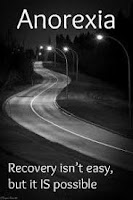Alex Schadenberg
Executive Director, Euthanasia Prevention Coalition
If the patient’s eating disorder treating physician and evaluating psychiatrist agreed that she had a “terminal disease” and retained decision-making capacity, she would meet those requirements of the aid in dying statute in her jurisdiction.An article by Jennifer Brown that was published in the Colorado Sun on March 14 reports on Dr. Jennifer Gaudiani, an internal medicine doctor who specializes in eating disorders, who has published a paper on her experience with approving assisted suicide for three people with anorexia.
Colorado's assisted suicide law does not permit assisted suicide for mental illness therefore Gaudiani has defined anorexia as a terminally ill. Gaudiani considers anorexia to be a terminal condition because of the high rate of death among those who struggle with the condition. Brown writes:
In the paper, published in February in the Journal of Eating Disorders, Gaudiani advocates for allowing patients who are dying from anorexia to end their lives on their own terms. She writes that, although anorexia doesn’t have delineated levels of severity like cancer, which has stages of progression and a terminal phase, it can be brutally lethal. It is widely believed to have the second-highest mortality rate of all mental illnesses, behind only substance use disorders.
Based on the fact that anorexia has the second-highest mortality rate of all mental illnesses, second to substance use disorder, does that mean that people with substance use disorder also qualify for assisted suicide?
This is abandonment. Even the ACAMAID consultation service acknowledged that:
There is no consensus in the eating disorder literature regarding whether a patient who has severe enduring anorexia nervosa is “terminally” and “irreversibly” ill according to the definition in the State statute.
The recent Oregon 2021 assisted suicide report also listed anorexia as a reason for assisted suicide.
People with anorexia have a high mortality rate and many people live with anorexia for many years, nonetheless, the Beat Eating Disorders website contains multiple stories of people who were treated and successfully recovered.
I am not suggesting that everyone recovers from an eating disorder. I am saying that assisted suicide for anorexia is abandonment. Death by assisted suicide denies the opportunity to recover.
My experience with assisted death is that once someone is convinced that death is their only option, treatment becomes more difficult since thd person is focused on death and not recovery. Assisted suicide is not about the "freedom" to die, but rather it is about medical abandonment.


No comments:
Post a Comment